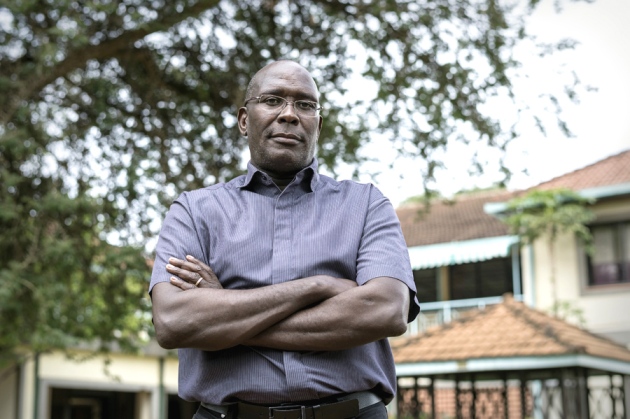AAS-AESA and partners’ investment will increase Africa’s population of postdoctoral researchers with support from Carnegie Corporation of New York

The African Academy of Sciences and the NEPAD Agency’s Alliance for Accelerating Excellence in Science in Africa (AESA) and its partners have announced a $2 million programme, which will train postdoctoral researchers to support globally competitive research in African universities and contribute to the creation of knowledge-based economies on the continent.
The investment, enabled by a grant from Carnegie Corporation of New York, will build on the foundation of the Science Initiative Group (SIG)’s Regional Initiative in Science and Education (RISE), which has for a decade prepared PhD- and masters-level scientists and engineers in sub-Saharan Africa through competitively selected, university-based research and teaching networks.
The new AESA-RISE Postdoctoral Fellowship Programme responds to an urgent need to increase the number of researchers in Africa.
Africa has only 169 researchers per million inhabitants, compared to 428 in Chile and 4,107 in the UK, resulting in it contributing only 2.6% of global scientific output. Africa’s few high-quality postdoctoral training programmes are insufficient to meet the demand; compounding the problem, there is limited funding for postdoctoral training, and the faculty who would otherwise conduct postdoctoral training and research are unavailable due to heavy teaching loads driven by high student enrollment rates in African universities.
The organisers believe that a postdoctoral fellowship is a necessary part of the training that enables a scientist to develop into a fully successful research and academic leader and a critical addition to the educational ecosystem.
The new AESA-RISE Postdoctoral Fellowship Programme is being implemented in partnership with seven African, US and European higher education institutions, to:
- Increase the number of postdoctoral researchers in Africa and build a critical mass of world class researchers by providing funding for training and research that will help to retain them on the continent so they can make an essential contribution to the development of knowledge-based economies.
- Provide a quality and structured postdoctoral training programme to nurture the next generation of researchers to independently lead research and innovation programmes and to emerge as future mentors and supervisors.
- Provide access to quality research facilities and mentors from Africa and abroad through its partnerships with the African Institute for Mathematical Sciences (AIMS), the Cambridge-Africa Programme at the University of Cambridge, the Africa Oxford Initiative, the African Research Universities Alliance (ARUA), the International Science Programme at Uppsala University in Sweden, the University of Basel in Switzerland in the framework of the Swiss – African Research Cooperation (SARECO) and the US-based Science Initiative Group, which implemented RISE.
- Promote the production, reproduction and transition of knowledge from research laboratories to lecture halls as well as to the halls of government, in order to create an enduring infrastructure for globally competitive African universities that attract international students and researchers. The ultimate goal is to produce policies, products and practices that impact lives and livelihoods on the continent.
| “The AESA-RISE Postdoctoral programme will make an important contribution to improving the continent’s scientific capacity by developing world class researchers and supporting them to work in environments that will enable them to produce knowledge to help Africa to meet its developmental needs,” said AAS’ Interim Executive Director and AESA Director Dr Tom Kariuki. The first phase will run for three years but AESA and partners are leveraging for more funding to extend the programme and to maximise impact. Since its creation in 2015, AESA is said to have been dedicated to the development of Africa’s research leadership. Today’s investment builds on this work and leverages partnerships to ensure its success. |
An initiative of the African Academy of Sciences (AAS) and the New Partnership for Africa’s Development (NEPAD) Agency, the AESA is an agenda setting and funding platform established to address Africa’s health and development challenges.
The RISE prepares PhD- and MSc-level scientists and engineers in sub-Saharan Africa through competitively selected, university-based research and teaching networks. RISE was implemented by the Science Initiative Group based at the Institute for Advanced Study in Princeton, New Jersey, USA.
The AIMS is a pan-African network of centres of excellence for postgraduate education, research and outreach in mathematical sciences seeking to promote mathematics and science in Africa.
ARUA, a partnership of research universities in Africa, was launched in early 2015 as a response to the growing challenges faced by African universities and to build indigenous research excellence to enable the continent to take control of its future and assert itself as a powerful global force.
The Africa Oxford Initiative aims to support the work of universities and institutions across Africa and to facilitate the development of equitable and extensive collaborations between Oxford and African Institutions.
